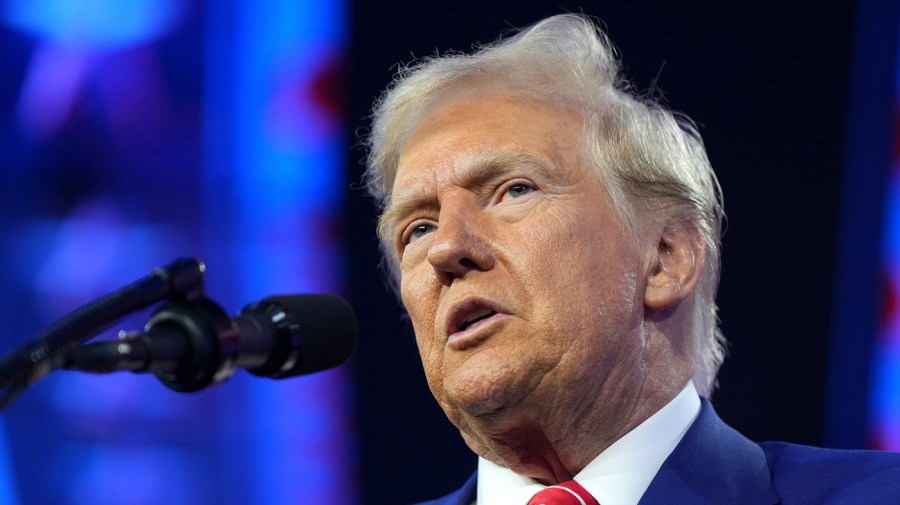
When Donald Trump takes the oath of office for the second time in two weeks, he will face a nearly impossible task of governing effectively.
Despite Republican delusions about winning a sweeping and massive electoral mandate to govern, Trump will have the thinnest of political margins of any president certainly of this century. And by obtaining plurality of votes, he must realize that over half of Americans did not vote for him for many reasons from outright disgust of his character and past history to regarding both he and Kamala Harris as unfit for office.
By far, Trump’s biggest challenge and obstacle to success is convincing a substantial number of this majority that he deserves to be their president. One hopes he can do that. A question will be which Trump will emerge.
The better Trump is the charismatic leader who has abandoned his fight-to-the-death ideology in favor of the wounded ex-president raising a fist and shouting “Fight, fight, fight.” Whether, as Lincoln observed, Trump’s “better angels” will persevere or the darker version whose grim first inaugural eight years ago coined the phrase “American carnage” remains unknown. But his presidency will rest on that.
When asked if America is better or worse off than four years ago, how would President Joe Biden have responded to that question when he assumed office in 2021? The COVID pandemic had not run its course. The economy was shaky. And Trump had only succeeded in further dividing the nation.
But that was before Russia invaded Ukraine in 2022 and China’s President Xi Jinping ordered his military to prepare for a Taiwan contingency by 2027. And no one would have suspected that Biden would lose his reelection bid on a June night debate with Trump when he was incoherent and clearly impaired.
It is also may be no coincidence that since Trump’s election, and despite its record growth this year, the Dow Jones stock average dropped 3,000 points. Allies in Europe are fearing the worst, given what is perceived as “America First” policies causing the U.S. to grow more isolationist and in essence raising the metaphoric draw bridge to the outside world. A recently retired senior British MP, the Hon. Tobias Ellwood, related this concern to me a few days ago.
While some of us think that Trump’s aspirations to make Canada a 51st state, buy Greenland from Denmark and wrest the Panama Canal from Panama is either misdirection and deception to hide other initiatives or is delusional, that is not the perception in the United Kingdom.
This scenario is a U.S. withdrawal from being the policeman of the world to being the guardian of Fortress America made safer by these territorial acquisitions that are protections from the rest of the world.
As the polar ice caps melt, Greenland will give the U.S. a buffer to counter Chinese and Russian exploitation of the new seaways. Ownership of the canal will give the U.S. leverage on who can or cannot use it for transit at a time when Trump is imposing high tariffs to make America rich again and to help pay off the $36 trillion debt.
On one hand, this scenario seems absurd. The U.S. had tried twice to bring Canada into the fold during and after the American Revolution and failed. Why is Greenland needed for access to the Arctic when Alaska is already part of the Union? And barring an invasion, Panama will not relinquish the canal.
Yet with Trump one never knows. And this does not include Ukraine and what Trump’s plans are for ending that conflict.
Possibly more realistic is the domestic political challenge. The debt ceiling and budget need immediate legislative action. With a razor-thin majority in the House, how will the border and deportation promises be honored? Will Trump’s tax cuts be extended and other initiatives be approved?
And will his Department of Government Efficiency succeed or will it create so much disruption that chaos and gridlock can only ensue?
Frankly, given the political hand he will be dealt, one wonders how Lincoln or FDR would be able to play it more successfully than Trump. If the “Better Trump” wins through and can convince a majority of Americans to believe in him, the chances for success can only be increased. If the “Darker Trump” prevails, then the nation and probably the rest of the world will be in trouble.
What will happen? Perhaps his second inauguration will provide a few hints.
Harlan Ullman Ph.D. (Twitter/X @harlankullman) is United Press International’s Arnaud deBorchgrave Distinguished Columnist, senior advisor at Washington D.C.’s Atlantic Council, chairman of two private companies and principal author of the shock and awe military doctrine. His next book, due in 2025, is “The Great Paradox: Strategic Thinking in an Unstrategic World.”












